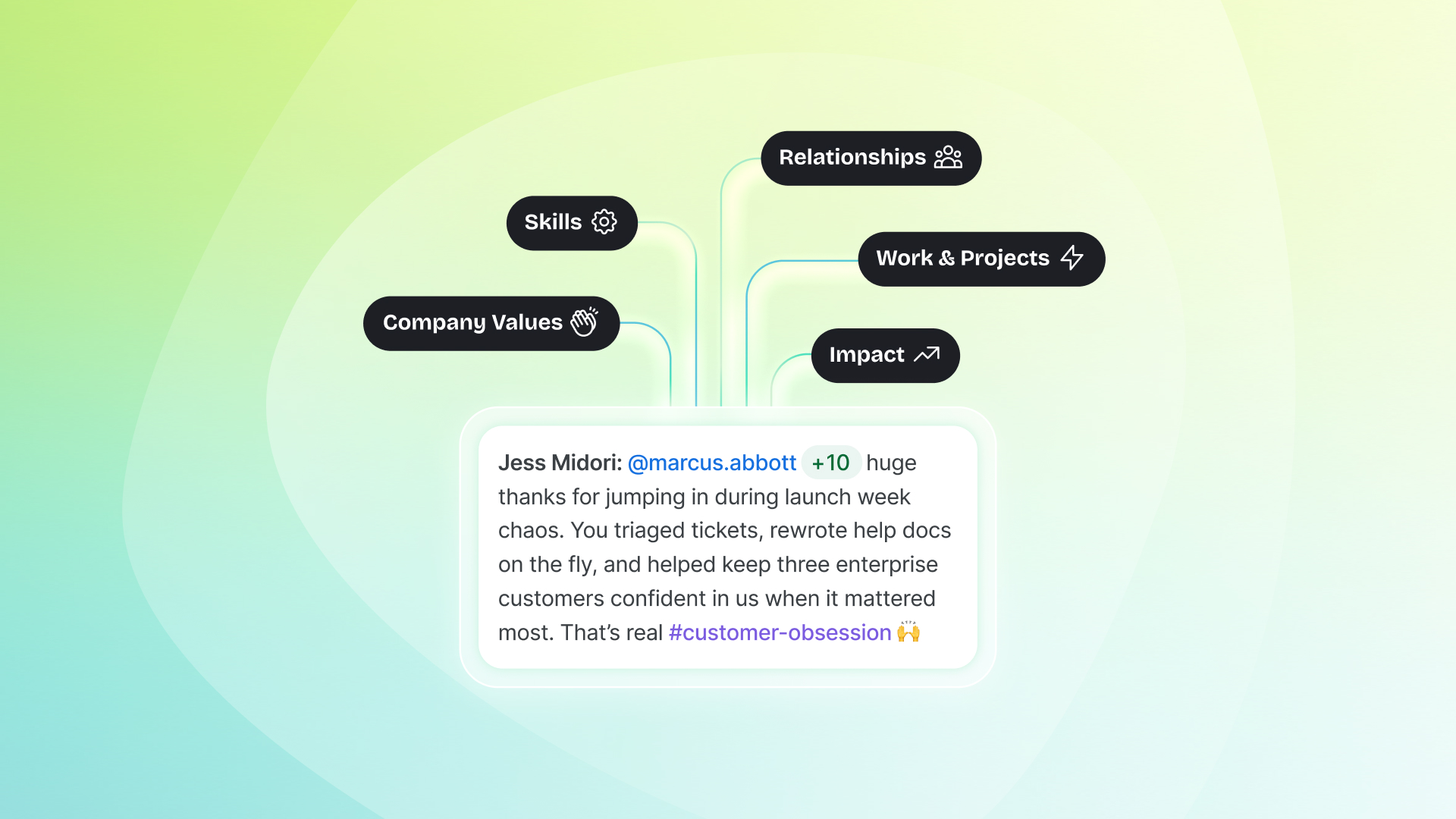5 Popular Employee Incentive Programs That Can Easily Backfire

Employee incentives are challenging to get right. Although their ultimate goal is to motivate employees to succeed and achieve their best, many of these programs have unintended consequences.
1. Annual bonuses
Annual bonuses are still used commonly, even in modern organizations, but there are several unexpected consequences associated with using them. Unless they're consistently larger each year, annual bonuses can have the opposite of their intended effect — disappointing employees instead of motivating them.
Let's take a look at this example:
During previous years, a company was doing extraordinarily well and was able to give increasingly large annual bonuses to each employee. Everyone's beside themselves with excitement during the holiday season. Awesome, right?
Sure. But imagine that isn't the case this year. Business is less than booming. This year, it's going to be difficult, if not impossible to hand out bonuses of the same size. There's a good chance the recipients have developed expectations that will inevitably be disappointed, even if they're trying not to show it.
As Dana Wilkie explains in her article for the Society for Human Resources Management (SHRM),
Breaking the news to employees that they won’t be getting bonuses—especially after they have toiled over setting goals and meeting quotas in anticipation of being rewarded for their efforts—is never an easy thing to do.
This isn't the only unintended consequence of an annual bonus policy.
In most cases, annual bonuses aren't tied to an employee's individual actions. That's a huge missed opportunity for strengthening cultural alignment. It's also a missed opportunity for providing guidance on which things an employee does that the organization deems most valuable, and helping them to understand the value in the work they do.
Annual recognition schemes miss the opportunity to show recognition for all the great contributions, big and small, that are made daily. Employees who consistently work hard without recognition aren't going to feel as though a bump in their December paycheck makes up the difference — even if it is a large one.
2. Quota-based incentives

Great, so let's get objective and use quota-based incentives — they'll show employees how much we value their hard work, and it will motivate them to get more work done.
Well, not exactly.
Although quota-based incentives can be effective incentive to reach a specific goal, that's where their effectiveness plateaus, and where their value falls apart.
Quota-based incentives have the unfortunate consequence of constraining employee motivation, rather than elevating it.
If you give incentives to a customer success representatives based on how many support tickets they close, you're incentivizing them to find the fastest way to resolve as many tickets as they can in one day.
What's wrong with that?
The problem is this: in many cases it can be, but the fastest resolution isn't always the best resolution. The best resolution results in a customer who is delighted by their interaction with the organization. Sometimes that can mean the fastest interaction, but sometimes isn't always.
Paying engineers a bonus based on the number of lines of code they write won't make them more productive either. It just incentivizes bad, redundant code.
The list goes on here — I'm sure you can come up with a few examples of your own.
But that's not the only problem.
There's a second unintended consequence to a quota-based incentive: it nearly always fails to encourage employees to think creatively and find ways to exceed and surpass goals.
Quotas are woefully ineffective in rewarding innovation.
Even in the most rote tasks, there's room for innovation. When employees are given the incentive to think creatively, there's a much greater potential for them to improve the methods with which they complete their tasks beyond the incremental.
3. Unlimited vacation

Unlimited vacation sounds like a really nice offer doesn't it? It can be, if it's implemented in a way that encourages employees to actually use it.
The problem is, an unlimited vacation policy often carries the unintended side-effect of discouraging employees from taking time off.
How's that?
Most unlimited vacation policies are stated in a way that encourages employees to take as much time as they need to rest and recuperate as long as their responsibilities aren't impacted. Most people who have ever worked at a startup or any other fast-growing organization will tell you that their responsibilities don't exactly have a finite starting point or finish line.
So what does that mean?
It means the time is never right to take that much-needed vacation, so the unlimited vacation policy becomes the no vacation policy.
In an organization where days off are metered out and closely-tracked, employees are often more likely to use their vacation days than under an unlimited vacation scenario.
Why?
Because they've been allotted. It might not sound as exciting as 'unlimited vacation' but an allotment of vacation days are more often utilized to their full effect. This doesn't mean you need to abandon the idea of unlimited PTO — just adjust the policy to avoid this pitfall.
Here's an example:
In our organization we've been able to strike a nice balance by offering unlimited PTO, but instead of tracking a maximum allotment, we track days off to make sure everyone takes the minimum number of vacation days stated in our company un-handbook. So far, the policy has been very well received.
4. Overtime

Overtime pay isn't intended to be an incentive, but some organizations treat it that way. If a company is paying overtime as a matter of course rather than a last resort, it's time to take a hard look at the efficiency of its human resources management.
The goal is to avoid putting employees into a situation where they're regularly obligated or even incentivized to work hours that warrant overtime pay.
Things do happen from time to time that can make overtime unavoidable, and in a short-term context, overtime can be an effective solution. Over the long term though, defaulting to overtime isn't a tenable solution.
With enough overtime work, even the strongest employees will succumb to burnout.
But burnout isn't the only problem.
Work that is being done during overtime hours is often less productive overall, even during short-term sprints. This implies that overtime is the most expensive way to get things done. Not just because you're paying extra — there's a significant and well-documented productivity loss associated with it.
Think of it this way:
While a manager might intuitively expect a 50 percent increase in work hours to produce a parallel 50 percent increase in output, the output for that 50 percent increase in work is more likely to produce 20-30 percent more output during a short-term sprint — with a steadily decreasing return on investment proportionate to the number of overtime hours.
Evan Robinson shared an excellent, and well-researched article on the IGDA's website about the history of "crunch time," and how business has evolved over the past 100 years to utilize overtime less and less.
5. Employee of the month

Employee of the month awards and similar incentives like employee of the week, employee of the year, and so on are problematic for several reasons.
For one, they're exclusionary.
One of the biggest problems with 'employee of the month' awards is their inability to recognize the worthy achievements and contributions other employees have made.
The singular nature of an 'employee of the month' award prohibits it from being effective on a large scale, but the greater consequence of showing your appreciation for one employee each month is the lack of appreciation everyone else will inevitably feel.
That's huge, but it's not the only problem.
At best, "employee of the month" selection processes are subjective. This leaves the person designated to select the employee of the month between a rock and a hard place.
They're charged with determining which of their teammates deserves the title. It's nearly impossible to be fair and impartial in this situation, so in order to keep things "fair," the selection process often becomes random.
If the selection process is random, then the recognition is meaningless.
Anyone doing a very deep analysis of who might deserve to be employee of the month any given month will probably come to the conclusion that more than one of their colleagues deserves that title.
So why impose that artificial constraint in the first place?
In summary
There's no silver bullet for employee incentives, but staying aware of the potential consequences of each can make them much easier to avoid.
If you're currently using any of these strategies, take a moment to step back, and see if you notice any of the unintended consequences mentioned above.
If you're ready to level up your strategy, check out our latest guide:







